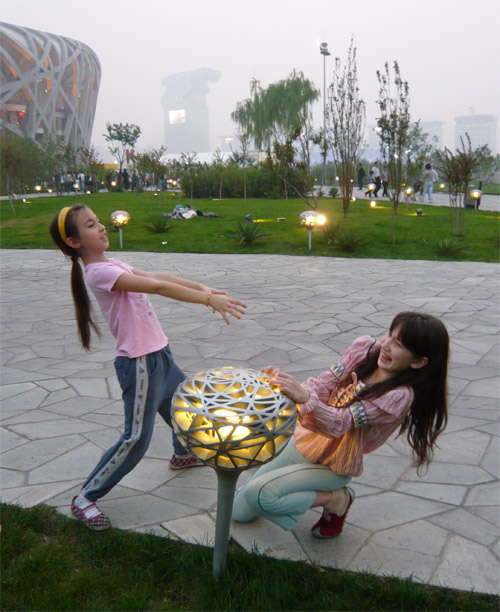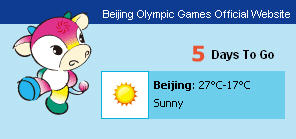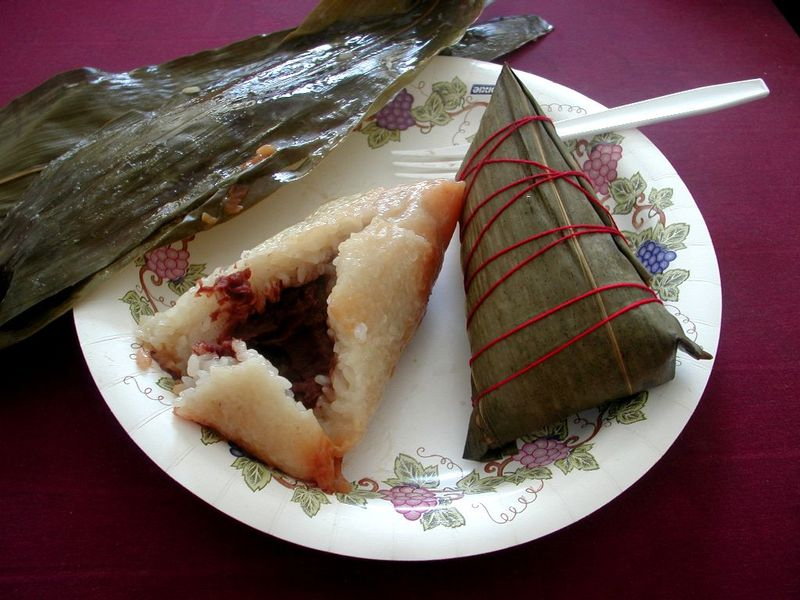Sun 5 Oct 2008
Top 10 signs that the Beijing Olympics are really over
Posted by + mOdOk + under China news , Currents , Parenthood , Sustainability , olympics[3] Comments

Blysse and Ellie play in front of the smog shrouded Bird’s Nest
Things are finally back to “normal” in the Chinese capital, including the return of some things that are not particularly welcomed. Here are the top 10 signs that the Olympics and Paralympics are truly over:
1. Security checks have stopped. I was very pleasantly surprised when I went into Terminal 3 the other day and did not have to submit to a security check simply to enter the terminal. Likewise, security check points throughout the city have been abandoned, and the black-clad Olympic SWAT force has vanished. Yeah!
2. Road closures have re-opened. Many sections of the city which were cordoned off have now re-opened, making it much easier to get around in some cases.
3. Restaurants and clubs are back open. Nearly all of the venues that were closed before the Olympics are open again, except those unfortunate enough not to have survived the forced closure.
4. Al Fresco dining on streets has resumed. I didn’t really understand why they had to suspend outdoor dining on the streets throughout the games, but they did. Well, now you can enjoy again, except that the weather has just taken a turn and you will likely be enjoying your latte in the cold rain.
5. Street vendors are back! Just in time for sweet hot yams and tasty lamb skewers! Yummm.
6. The traffic ban has been lifted. The streets are back to their pre-Olympic congestion levels after the even/odd liscense plate ban has been lifted. A lot of people are unhappy about this, and apparently the government is looking at re-instating a similar rule, though not likely as strict.
7. Smog is back with a vengeance! As a result of the the lift in all of the pollution cutting measures leading up to the Olympics, we are all reminded of just how noxious the air in Beijing really is.
8. DVDs are on sale again! DVD stores are all gradually opening, though their inventory of illegal DVDs certainly leaves a lot to be desired. No doubt the selection will improve in short order.
9. Lady Bars are back! Just when I thought I would never have to be annoyed by another Lady Bar purveyor, they are back in force, and if you are a single man walking anywhere near Sanlitun after 5pm you are likely to accosted every ten steps by someone hoping you are stupid or naive enough to fall into their trap, willfully oblivious to the fact that if you just gave a disgusted look at the last invitation, they are likely to receive a similar reaction.
10. Pushers are back! Perhaps most telling of a relaxation in the city are the purveyors of all things illicit that roam the streets from Gongti to Sanlitun, nearly as numerous as the Lady Bar pushers, though somehow less annoying as they feel the need to be at least somewhat discreet.













